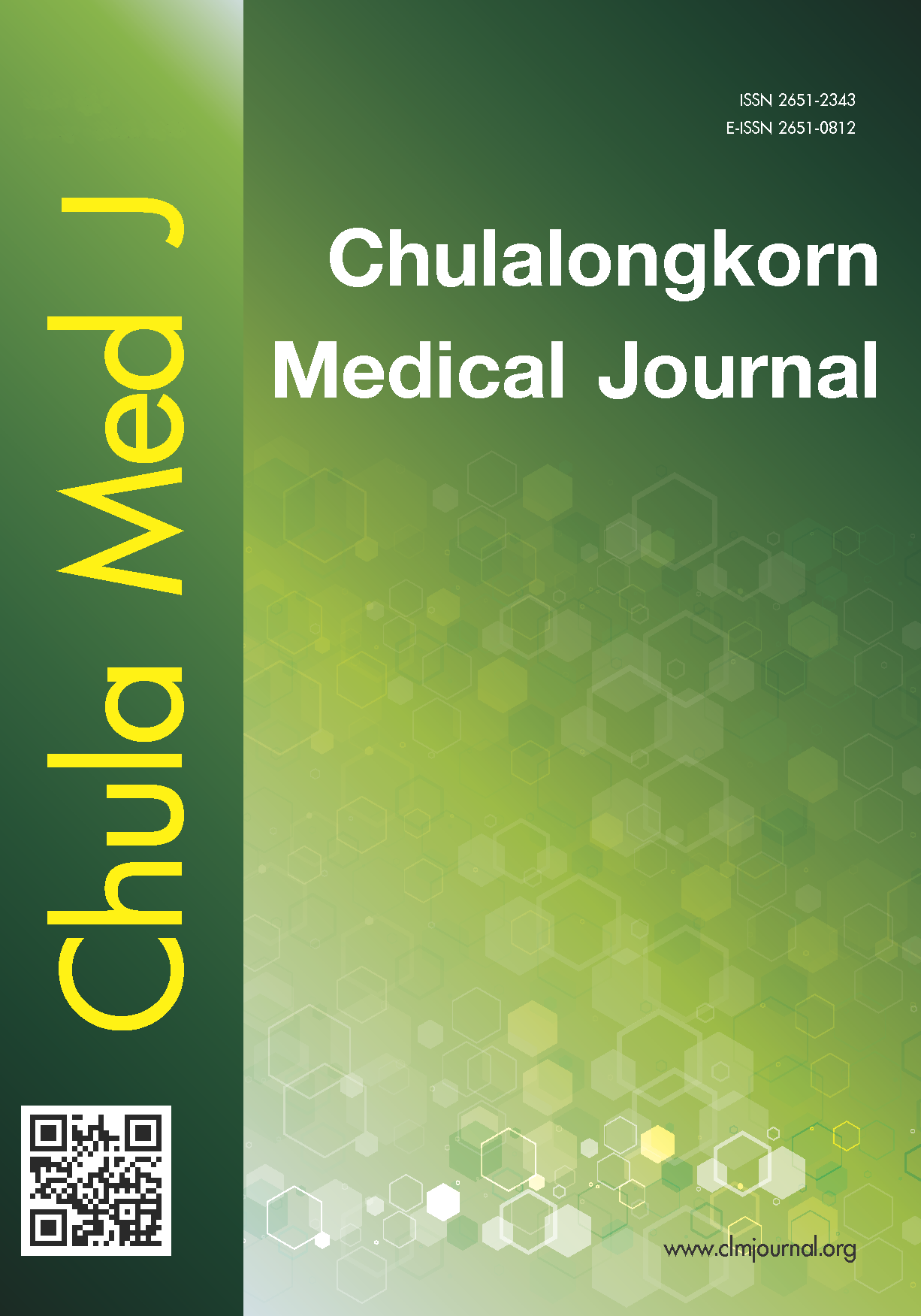Mental health status and quality of life of the elderly in rural Saraburi
Main Article Content
Abstract
Background: Mental health problems are frequently underdiagnosed in older populations. Mental health
problems and poor quality of life (QoL) can lead to adverse health outcomes and economical loss. Awareness
of the problems can lead to finding their causes and proper managements.
Objective: To evaluate the mental health status and QoL of the older population in a community in Saraburi
Province, Thailand.
Methods: Secondary data from a cross-sectional survey with simple random sampling to evaluate mental health status and QoL of the elderly were used. The survey was done by interviewing participants aged 55 years and above by 183 4th-year medical students of the Faculty of Medicine, Chulalongkorn University. The mental health status and QoL were assessed by the Depression Anxiety and Stress Scales (DASS-21) and the Older People’s Quality of Life (OPQOL-brief) questionnaires. Data were analyzed using descriptive and Kruskal Wallis test statistics.
Results: Of the 238 participants who completed the questionnaires, 74 (31.1%) had at least one negative emotional state from stress, depression or anxiety. The average QoL score from the OPQOL-brief was 52.04 (SD 8.81) out of 65. The average global QoL was 3.63 (SD 0.91) out of 5. The QoL was significantly different among various levels of stress, depression or anxiety < 0.001.
Conclusion: The study revealed the prevalence of mental health problems which was as high as 31%. These
mental problems could lead to major physical problems and economical loss; thus, the management such as
holistic health care should be promoted. The overall QoL in this study population was in the mid- to high- range. The severity of mental problems of the subjects was negatively correlated to the QoL.
